Youth talk modernizing Official Languages Act with senators in Facebook live-streamed roundtable
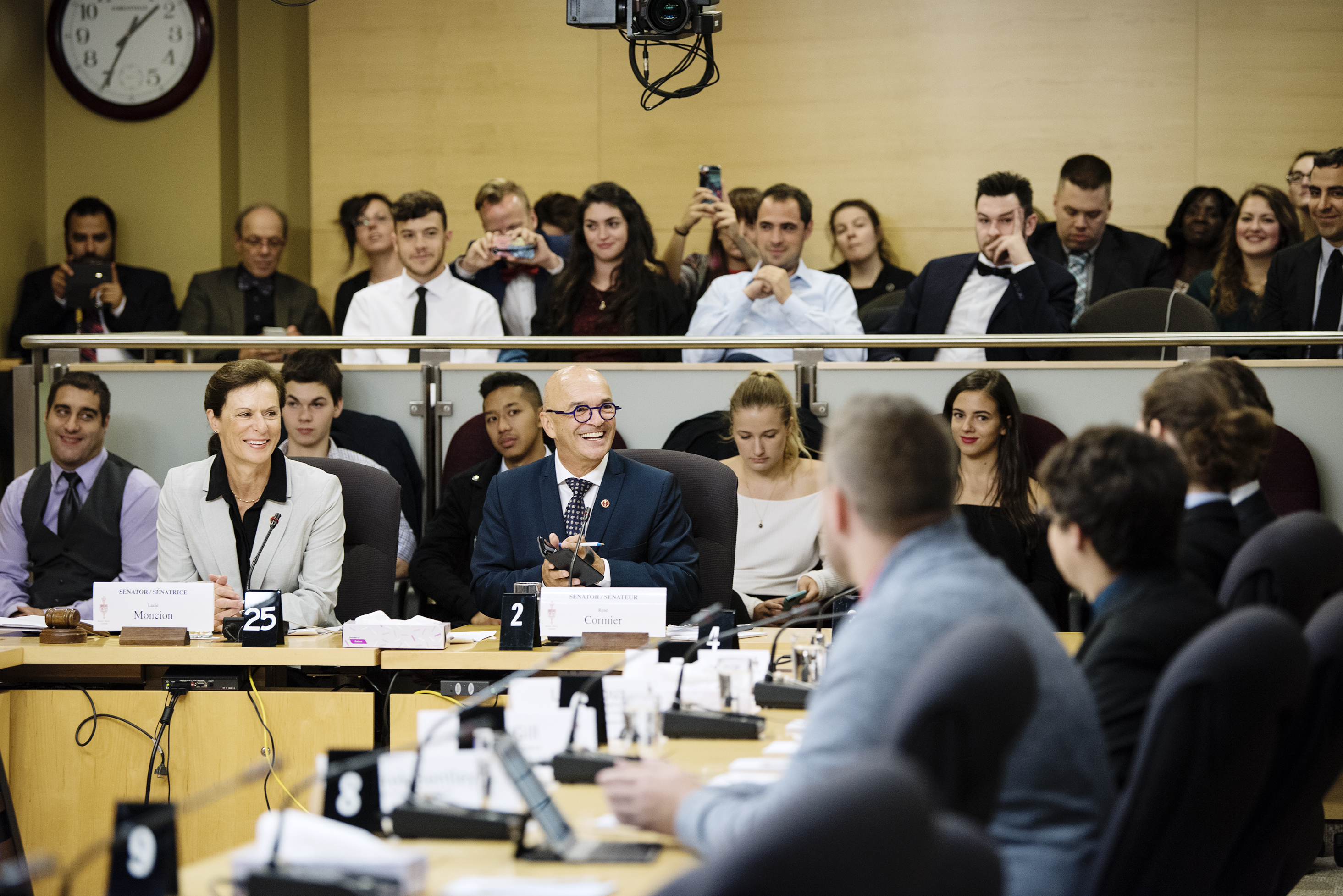
The Official Languages Act turns 50 years old in 2019 and the Senate Committee on Official Languages wants to get Canadians involved in modernizing this important piece of legislation.
That’s why on Friday, September 8, 2017, Senator René Cormier and Senator Lucie Moncion — both members of the official languages committee — teamed up with the Fédération de la jeunesse canadienne-française (French only) for a roundtable discussion in Ottawa about how to update the Official Languages Act to meet the realities of the 21st century.
“Official language rights are the heart of Canada’s social contract,” Senator Cormier said. “Indeed, we were thoroughly impressed by the insights of these young panelists, as well as their creative suggestions on how to re-energize the act, and by consequence, the country itself.”
These were among the numerous aspects addressed during the panel discussion:
- The need to redefine what a francophone is has to be more inclusive.
- The linguistic insecurity of some francophones.
- Increasing access to post-secondary studies in French.
- The relationship between language and culture.
- The development of new francophone spaces and events.
Panelists also talked with the senators about the need to strengthen ties among minority language communities in a country as large as Canada — a growing challenge in the age of social media.
Panelist Amélie Latour, a francophone from Yukon, mentioned that she didn’t realize, while growing up, how many other French-speaking Canadians there are in this country and how rich their tradition is. She spoke about the isolation many French-speaking people living in minority communities feel.
Many participants noted the need for a public awareness campaign to highlight the diversity of francophones and root out the insecurity many French-speakers feel in this country.
“I can’t stress enough the importance of inclusivity in the future of the French language in Canada,” Senator Moncion agreed.
“For French to thrive in this country, it needs to be spoken proudly, not just studied.”
One member of the audience said the act has failed insofar as it fractures Canada along linguistic lines. Bilingualism ought to be the main objective. In his eyes, the true challenge was how to make language rights and bilingualism relevant to all Canadians, not just those in minority-language communities.
The fruits of the discussions could guide committee members as they study the act and continue hearing evidence from official language minority communities, people who have witnessed the evolution of the act, legal experts and representatives of federal institutions.
The committee has touched on numerous issues relating language rights in the past, including access to French education in British Columbia, arts and culture and English-speaking communities in Quebec.
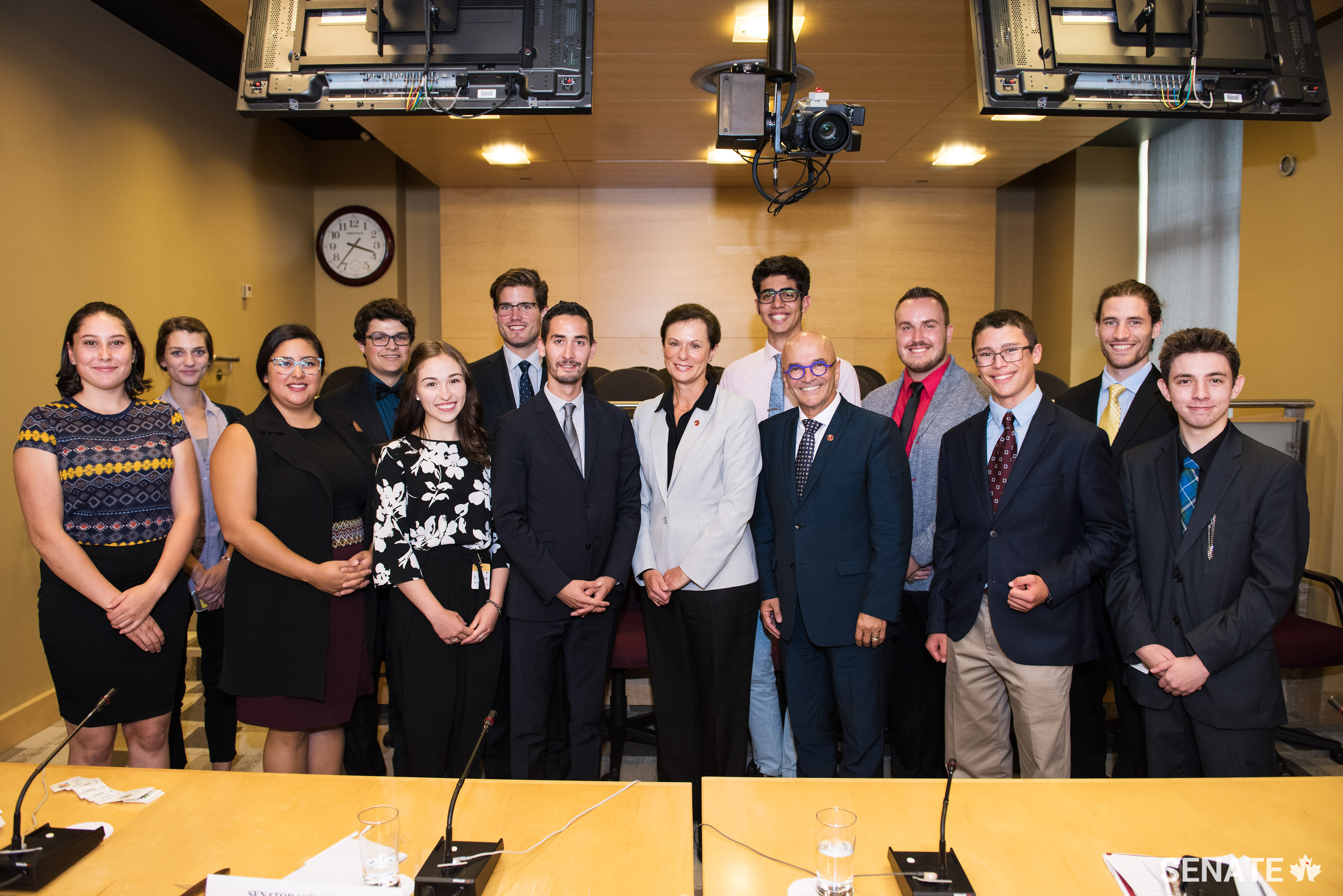
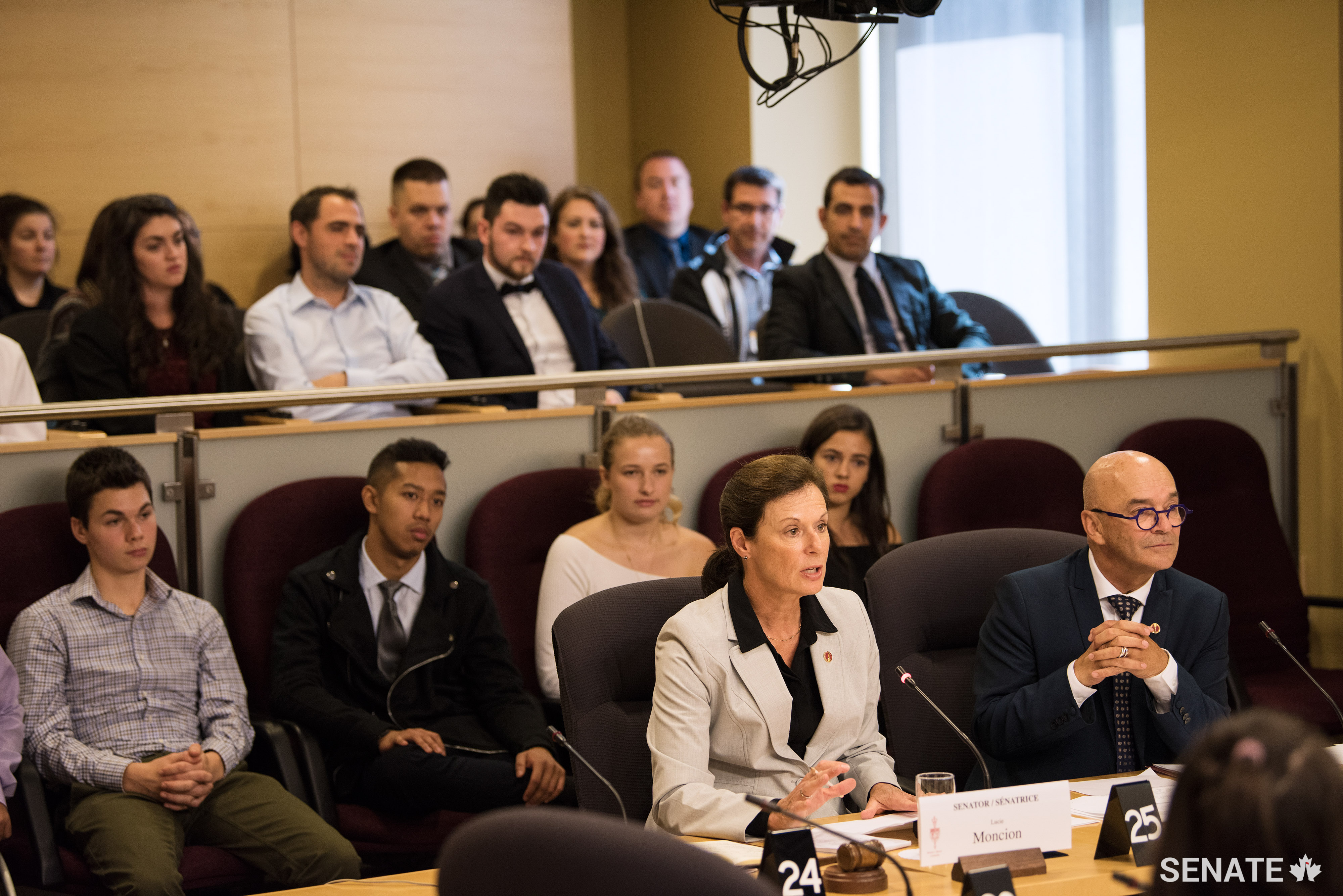
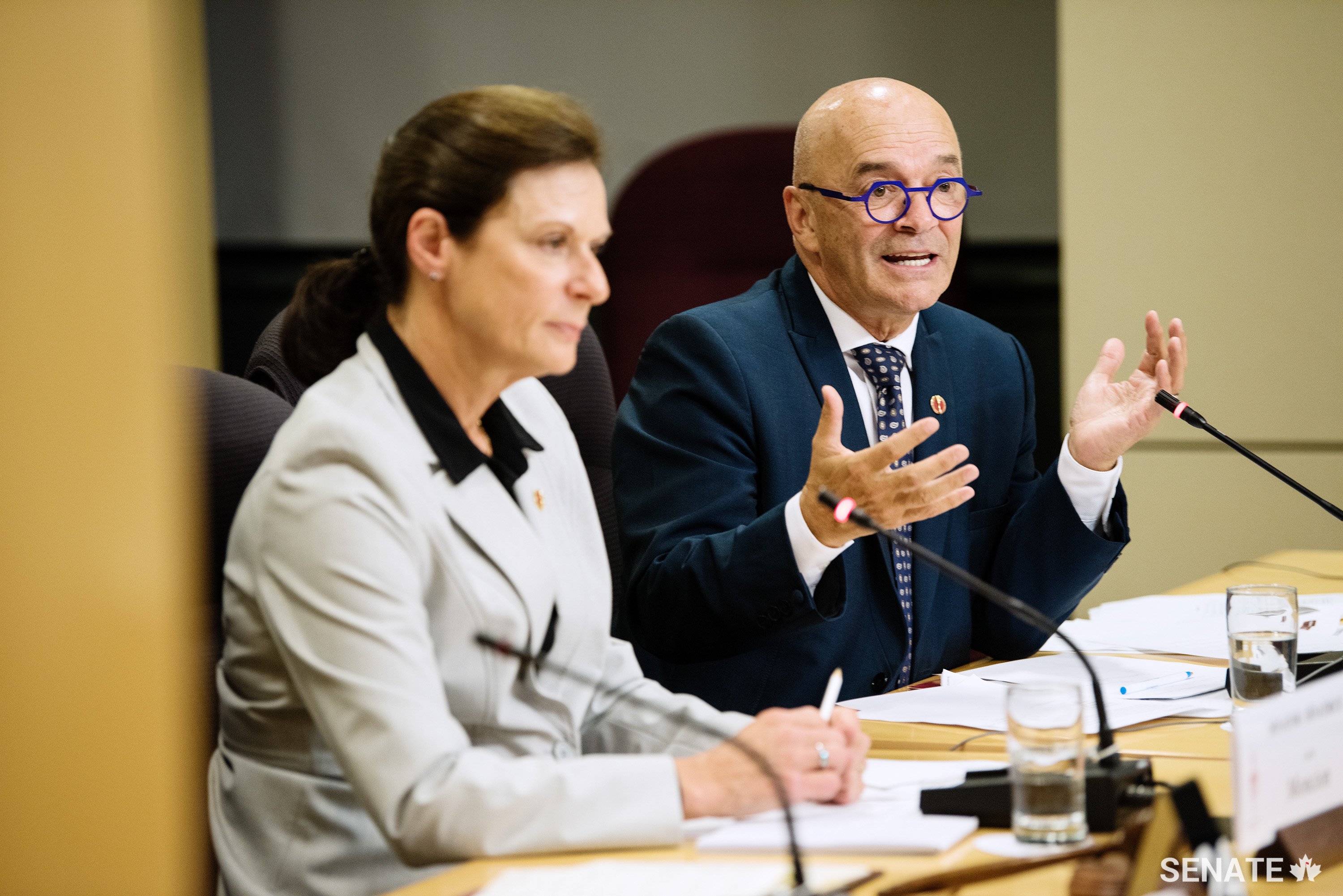
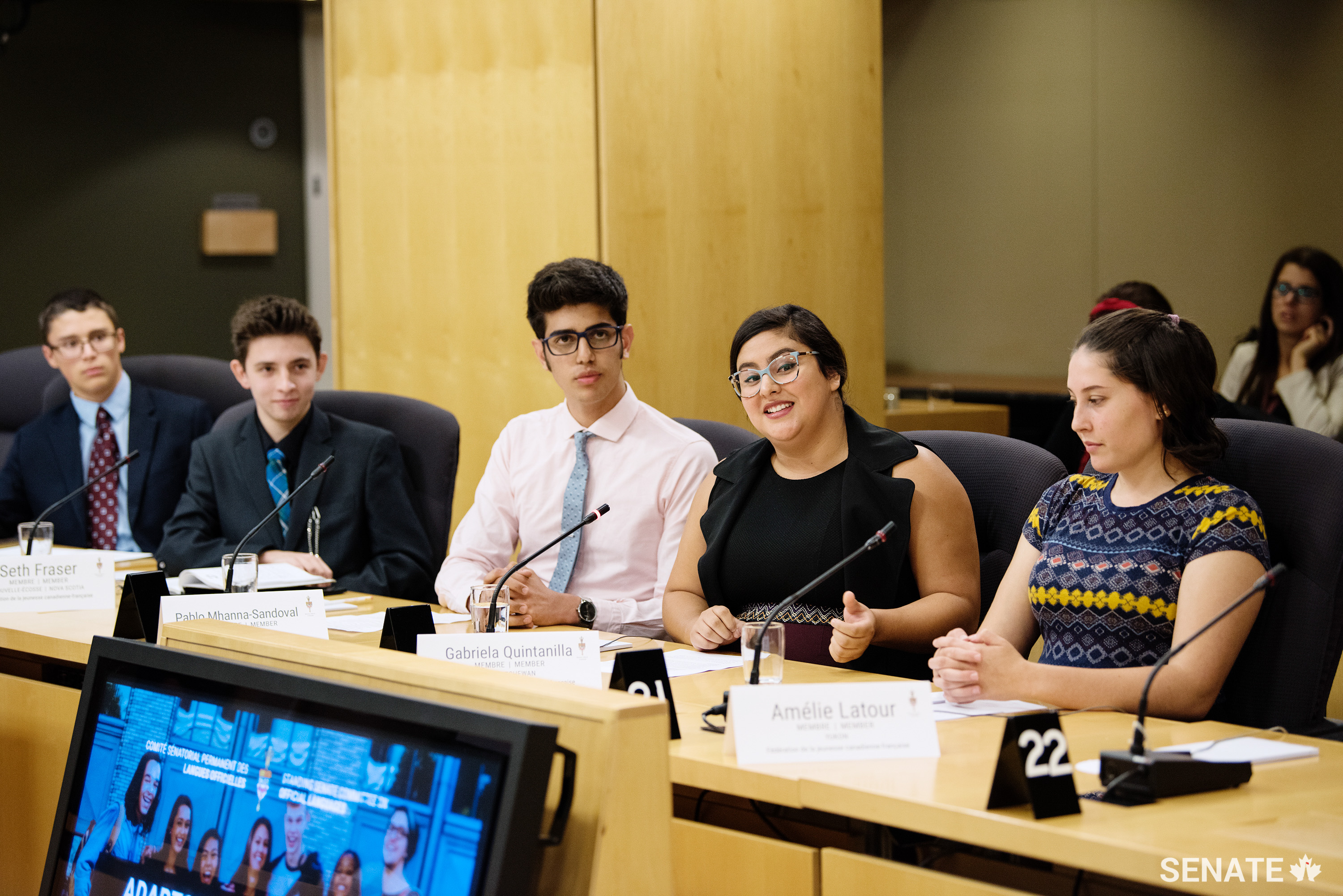
Related articles
Tags
Committee news
Youth talk modernizing Official Languages Act with senators in Facebook live-streamed roundtable

The Official Languages Act turns 50 years old in 2019 and the Senate Committee on Official Languages wants to get Canadians involved in modernizing this important piece of legislation.
That’s why on Friday, September 8, 2017, Senator René Cormier and Senator Lucie Moncion — both members of the official languages committee — teamed up with the Fédération de la jeunesse canadienne-française (French only) for a roundtable discussion in Ottawa about how to update the Official Languages Act to meet the realities of the 21st century.
“Official language rights are the heart of Canada’s social contract,” Senator Cormier said. “Indeed, we were thoroughly impressed by the insights of these young panelists, as well as their creative suggestions on how to re-energize the act, and by consequence, the country itself.”
These were among the numerous aspects addressed during the panel discussion:
- The need to redefine what a francophone is has to be more inclusive.
- The linguistic insecurity of some francophones.
- Increasing access to post-secondary studies in French.
- The relationship between language and culture.
- The development of new francophone spaces and events.
Panelists also talked with the senators about the need to strengthen ties among minority language communities in a country as large as Canada — a growing challenge in the age of social media.
Panelist Amélie Latour, a francophone from Yukon, mentioned that she didn’t realize, while growing up, how many other French-speaking Canadians there are in this country and how rich their tradition is. She spoke about the isolation many French-speaking people living in minority communities feel.
Many participants noted the need for a public awareness campaign to highlight the diversity of francophones and root out the insecurity many French-speakers feel in this country.
“I can’t stress enough the importance of inclusivity in the future of the French language in Canada,” Senator Moncion agreed.
“For French to thrive in this country, it needs to be spoken proudly, not just studied.”
One member of the audience said the act has failed insofar as it fractures Canada along linguistic lines. Bilingualism ought to be the main objective. In his eyes, the true challenge was how to make language rights and bilingualism relevant to all Canadians, not just those in minority-language communities.
The fruits of the discussions could guide committee members as they study the act and continue hearing evidence from official language minority communities, people who have witnessed the evolution of the act, legal experts and representatives of federal institutions.
The committee has touched on numerous issues relating language rights in the past, including access to French education in British Columbia, arts and culture and English-speaking communities in Quebec.






